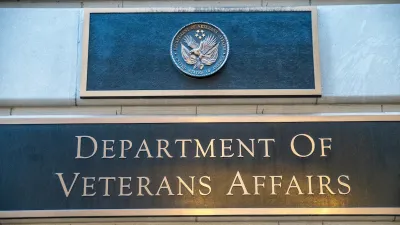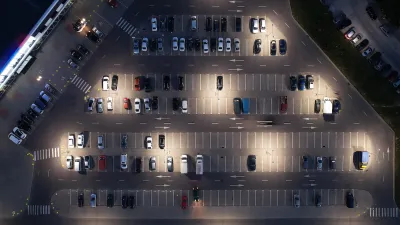As noted by the Department of Veteran Affairs, even one veteran without safe and stable housing is too many. Ron Littlefield calls for cities to move beyond studies and seek ways to aid returned veterans.
Ron Littlefield, former mayor of Chatanooga and a senior fellow with the Governing Institute, details the ongoing challenge of housing and caring for the country's veterans.
"A number of the municipalities in the City Accelerator initiative identified homelessness among the short list of critical urban issues affecting their communities. It is unquestionably a major problem across the United States," writes Littlefield.
Littlefield goes on to cite recent coverage of efforts to aid homeless veterans, including a series on NPR that focused, among other programs, on San Diego's "Stand Down," a free event offering health, dental and personal care for veterans.
As for why veteran homelessness is an especially acute challenge for cities, Littlefield quotes the following: "The U.S. Department of Veterans Affairs (VA) reports that homeless veterans mostly live in cities and suffer from mental illness, substance abuse or the lingering effects of post-traumatic stress disorder (PTSD). The challenging statistics are presented in The Wall Street Journal article, 'Veterans Try New Approaches to Heal the Wounds of War,' which notes that in 2012, the VA spent more than $3 billion on PTSD treatment and the Pentagon spent about $294 million more."
FULL STORY: Homeless Veterans' Sacrifices Merit Special Attention

Planetizen Federal Action Tracker
A weekly monitor of how Trump’s orders and actions are impacting planners and planning in America.

Maui's Vacation Rental Debate Turns Ugly
Verbal attacks, misinformation campaigns and fistfights plague a high-stakes debate to convert thousands of vacation rentals into long-term housing.

San Francisco Suspends Traffic Calming Amidst Record Deaths
Citing “a challenging fiscal landscape,” the city will cease the program on the heels of 42 traffic deaths, including 24 pedestrians.

Amtrak Rolls Out New Orleans to Alabama “Mardi Gras” Train
The new service will operate morning and evening departures between Mobile and New Orleans.

The Subversive Car-Free Guide to Trump's Great American Road Trip
Car-free ways to access Chicagoland’s best tourist attractions.

San Antonio and Austin are Fusing Into one Massive Megaregion
The region spanning the two central Texas cities is growing fast, posing challenges for local infrastructure and water supplies.
Urban Design for Planners 1: Software Tools
This six-course series explores essential urban design concepts using open source software and equips planners with the tools they need to participate fully in the urban design process.
Planning for Universal Design
Learn the tools for implementing Universal Design in planning regulations.
Heyer Gruel & Associates PA
JM Goldson LLC
Custer County Colorado
City of Camden Redevelopment Agency
City of Astoria
Transportation Research & Education Center (TREC) at Portland State University
Jefferson Parish Government
Camden Redevelopment Agency
City of Claremont




























